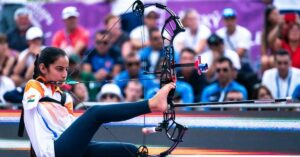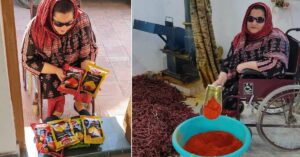Designer’s Artisanal Brooms Woven by Blind Women Make Them Financially Independent
Lakshmi Menon works with 15 women from the Kerala Federation of the Blind to make luxury artisanal brooms as part of her venture Choolala.
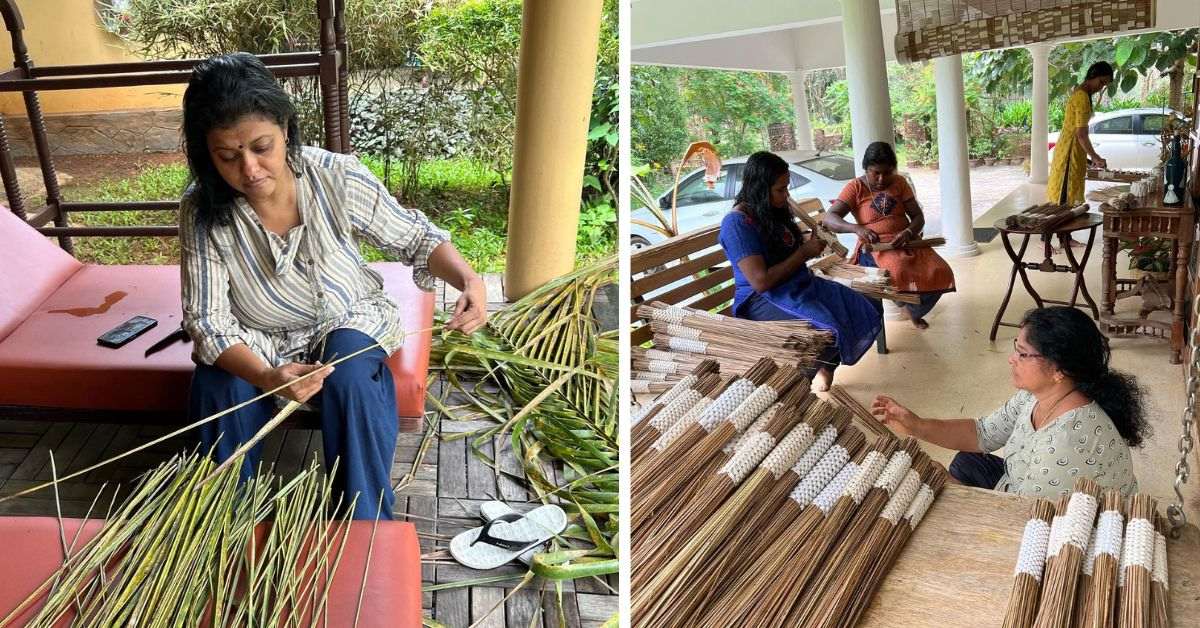
Right beside the doorway at the entrance to Lakshmi Menon’s home in Kerala, there is a sight that one does not see very often — two broomsticks side by side adorning the wall like any other piece of art would.
The broomsticks have a story behind them and a great one at that, as the 48-year-old designer tells us. Albeit attractive and colourful, one may point out that the pattern isn’t perfect in a few places.
Remark this fallacy to Lakshmi, and she is ready with a heart-rendering response.
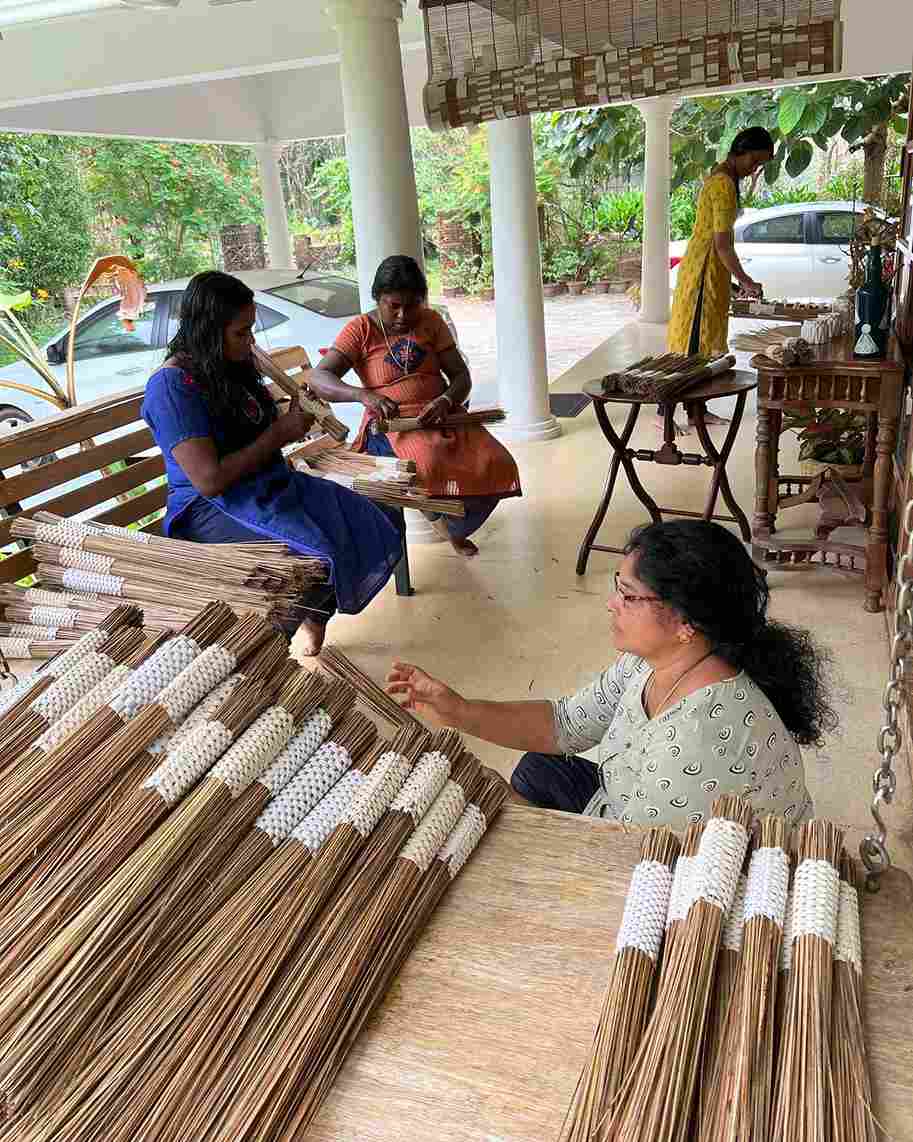
“If you can see the imperfections, you are one of the luckiest people because the person who made the broom could never see it themself.”
The hands behind these woven masterpieces belong to a group of visually impaired women at the Kerala Federation of the Blind, where Lakshmi imparts training to them in a bid to better their lives and give them hope for tomorrow.
But the noble idea started with a fascinating story, recounts the social entrepreneur.
A vacation, a coconut tree, and an idea
Hailing from Kochi Kerala, Lakshmi was spending a few days at an Ayurvedic beach resort in June in Thrissur at a property she terms ‘heavenly’. She recounts how her days would pass by in a blur, admiring the picturesque scene that met her eyes — lines upon lines of coconut and palm trees dotting the landscape of the resort.
As soon as the staff would notice aged and dead leaves on the trees, they would cut these down and sweep them off. The designer in her would be intrigued by this.
“In the villages of Kerala, it is a common practice wherein the women of the home make brooms of these dried coconut leaves,” says Lakshmi nostalgic about how she would do the same with her grandmother and mother when she was younger.
“Let me try my hand at it once again,” she thought. As Lakshmi got started using the spine of the coconut leaf to make the broomstick, she soon realised she could easily make around five broomsticks a day.
She discovered that these broomsticks would retail for Rs 250 and thought it would be a very sustainable venture to have. To add to the sustainable angle, Lakshmi decided to use scrap pieces of cloth from a neighbouring tailor instead of plastic that was usually used to tape the broomsticks together.
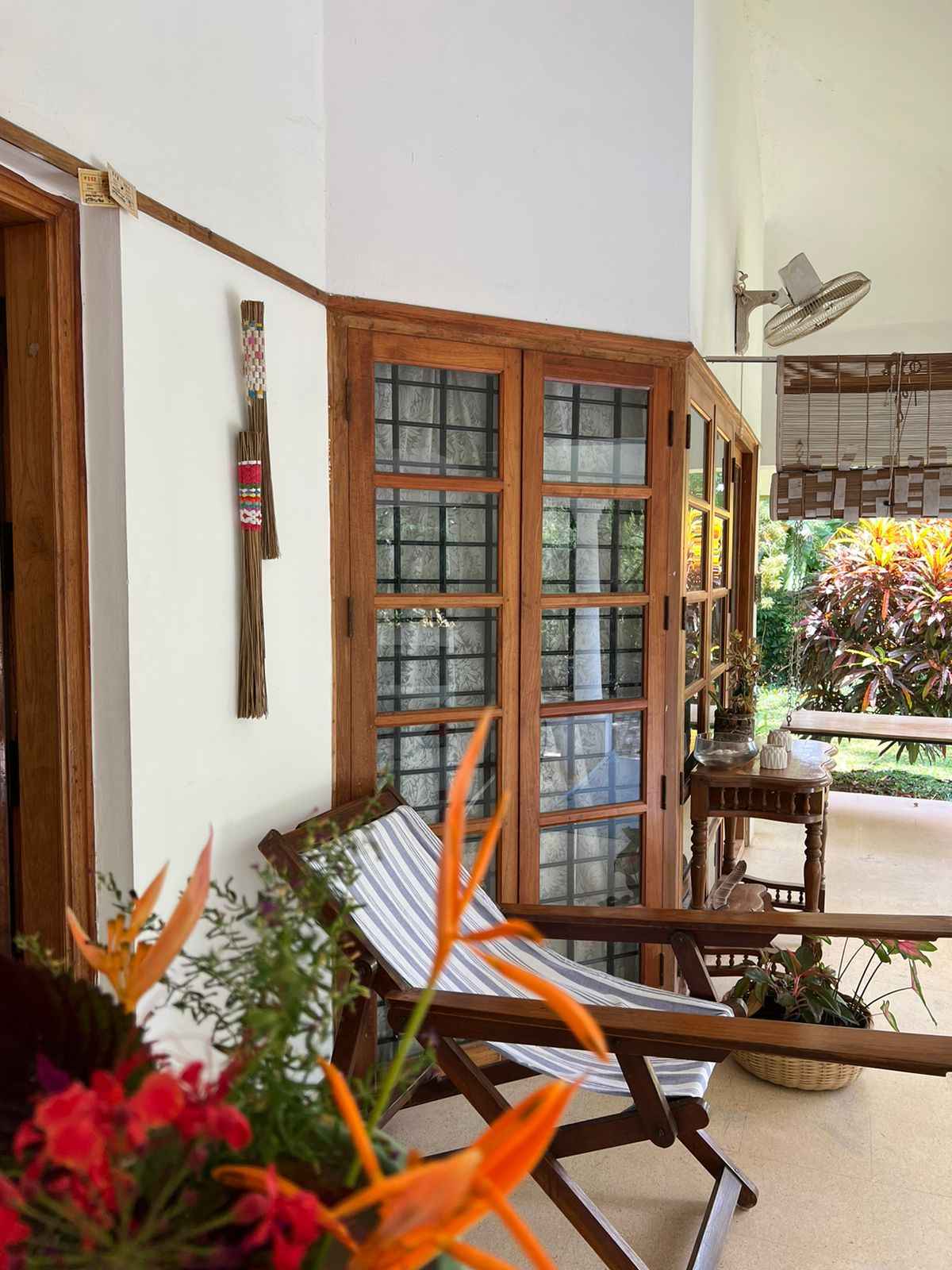
As soon as her friends and family and followers on social media saw the pictures of the broomstick that she had put up, she was flooded with orders for these.
So how did this fun vacation activity turn into a venture to help visually impaired women? Life has strange ways of working things out, says Lakshmi.
A call for help
In the weeks following her vacation, she got to know through a friend about the Kerala Federation of the Blind and how women at the federation were not getting much work those days.
“Can you think of an activity that can help these women?” the friend asked her over a call.
Lakshmi did not have to think twice before affirming that she indeed knew of an activity that did not require much skill and that these women would love doing. In fact by this time Lakshmi had taken the innovation further.
Elaborating on this she says, “I thought a tapestry would make an attractive covering for the broom. There was no point weaving through the entire thing. By simply covering the outer layer of the broom with colourful woven yarn, the appearance would be fabulous.”
This idea she says would not only save time but also not be too tough for the women.
On visiting the women the next day and pitching this idea to them, she received a great response and was surprised when they exhibited great dexterity in doing the work.
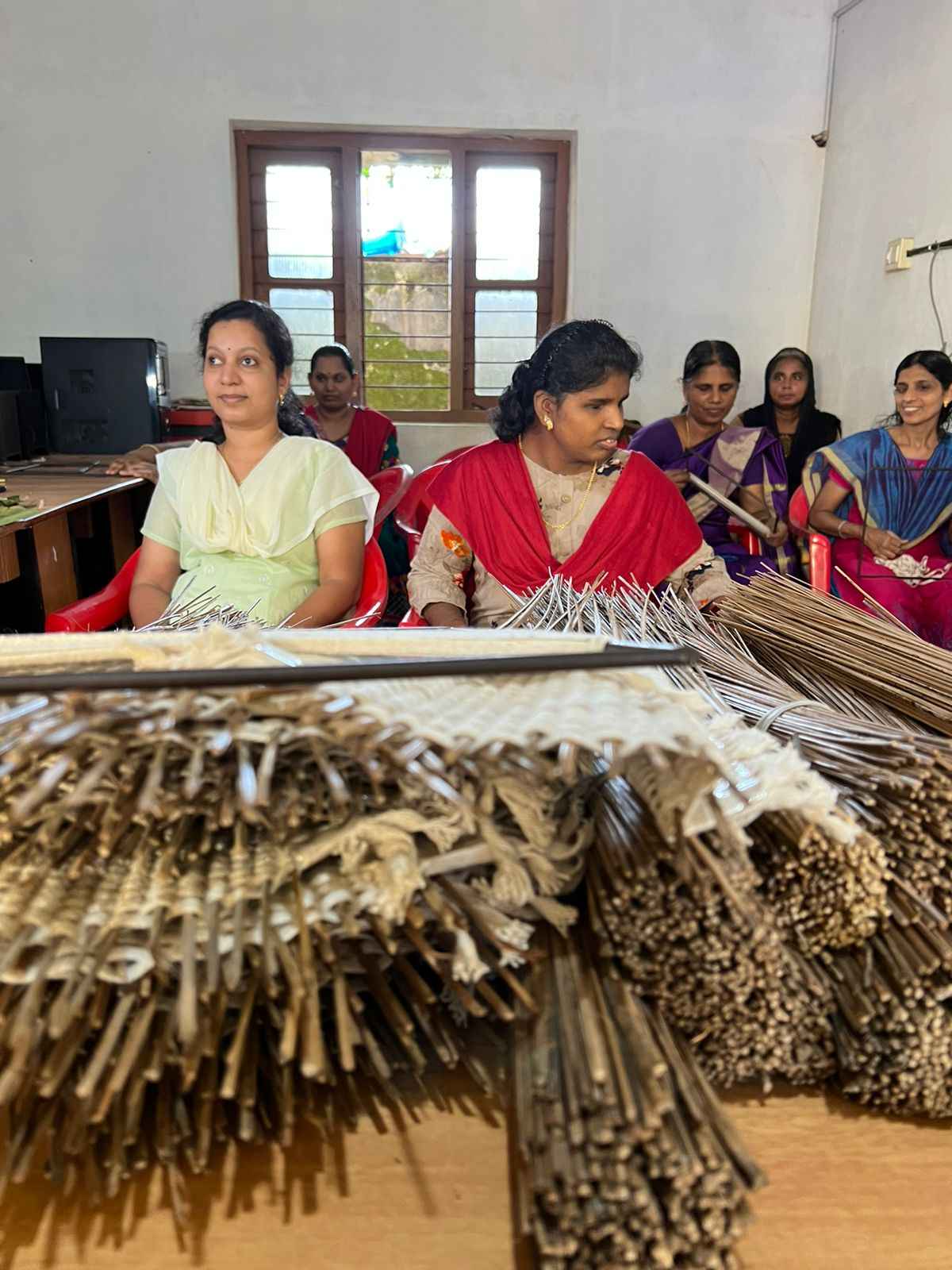
In August 2022, Choolala was born — a venture that would solely focus on these broomsticks made by visually impaired women.
Coining the name of the venture was fun, she explains. “The word ‘chool’ in Malayalam translates to ‘broom’, and adding ‘ala’ at the end gives it almost a musical ring.”
Choolala: A priceless broomstick
One thing that the designer was certain about was that the broomsticks could in no way be ordinary. “They have a luxury finesse associated with them, due to their appearance, which is non-polished, and also the fact that each broomstick is made by someone who despite not being able to see, has pieced this together,” she adds.
Thus, Lakshmi decided to have the broomsticks part of the artisanal broom segment, a place where they would get due credit for their rustic nature.
Speaking about the process of making the broomsticks, she says it is heart rendering to watch these visually impaired women make these. “They hum, sing, listen to music and enjoy the process so much, it almost feels there is magic happening right where the brooms are made.”
Anitha, one of the women says that compared to the activity of weaving plastic on a wooden chair which would take time, weaving the yarn can be done faster. Anitha says, “In one day we can complete 20 frames each and this activity is something that we do well and happily.”
Currently, there are 15 visually impaired women from Idukki, Calicut, Trivandrum, Kottayam and other places around Kerala, who are engaged in Choolala. While they live at the Federation of the Blind and have all their needs taken care of, Lakshmi provides them with training to make the brooms and they are given Rs 150 from the sale of the broomsticks.
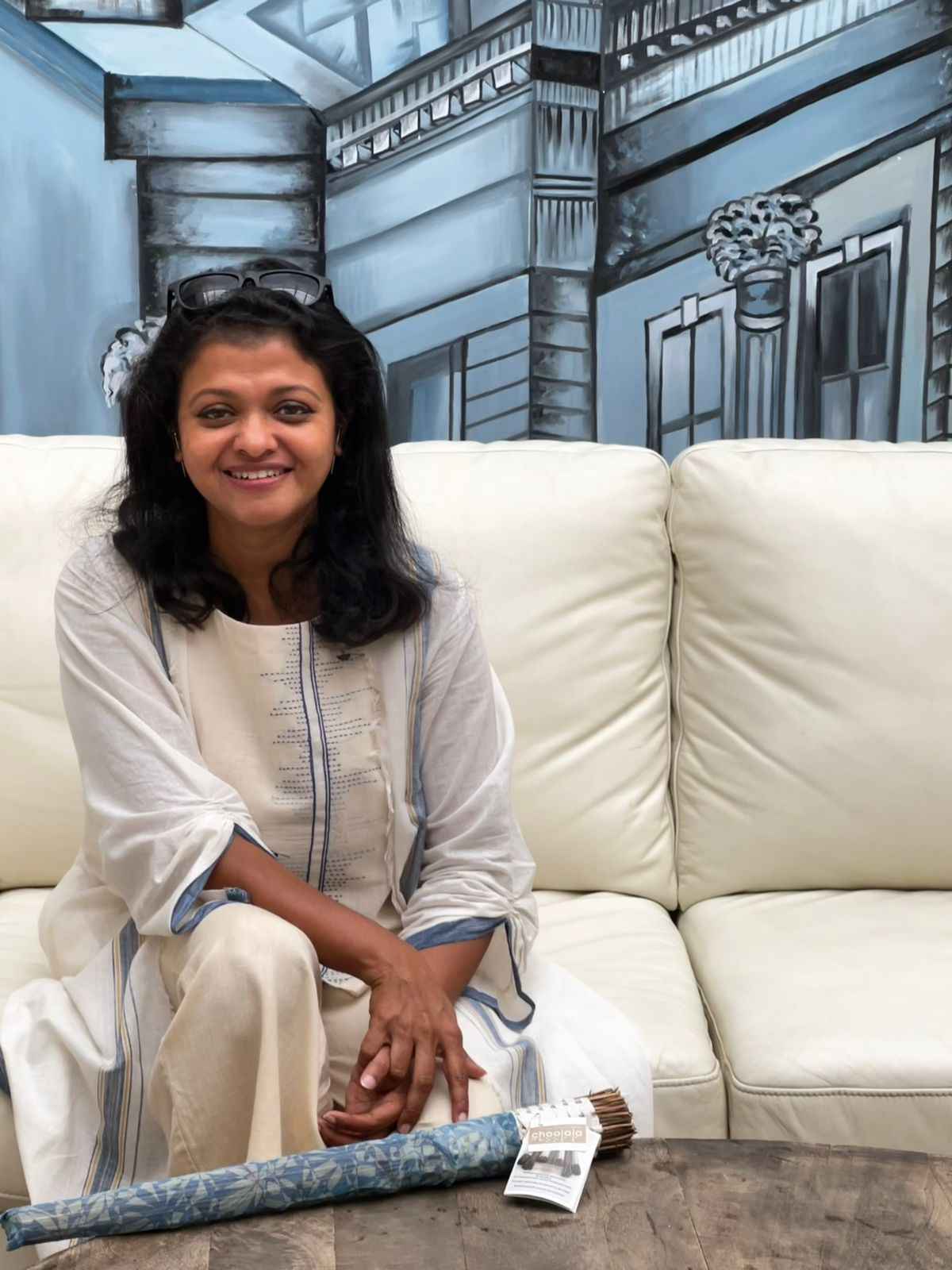
The broomsticks are priced at Rs 500 online, and Rs 300 offline. Once woven by the women, there is another set of five women who stitch the tapestry around the broomstick and put the whole item together. To date, 300 brooms have been sold.
Lakshmi is also in talks with the airport authorities in Kerala to have the broomsticks made available in all souvenir shops, as she says, “This is the best memory you can take back from the state.”
Mr Raju George who is the district president for the Kerala Federation of the Blind says he feels the future is bright when something as normal as a broom is being transformed into a decorative piece which will be displayed in people’s living rooms. He says, “Choolala is helping these visually impaired women irrespective of their disabilities to be involved in an activity that is most suited to them. We are convinced the community has a better future.”
Bettering lives through a host of projects
As for Lakshmi Menon, this project is memorable for many reasons.
“Of course, there have been challenges in setting up this venture,” she says, adding that her trick to finding a way through this is to turn the problem into the highlight.
“I could have been disappointed that the broomstick had some imperfections or wasn’t flawless. But I made that my selling point and told people the flaws are what makes the brooms special as they are made by people who cannot even see these flaws.”
Nothing handmade can ever be perfect, is what she believes, and so also the broomsticks have a kind of special touch.
However, she is not new to changing people’s lives through an idea. She has done this several times in the past.
For instance, in 2018 she worked with handloom villages in Kerala where clothes worth Rs 21 lakh were damaged in the Kerala floods. The villages were planning on burning these but Lakshmi took it upon herself to make rag dolls called ‘Chekutty’ out of these destroyed sarees.
“The dolls were not perfect, but they reflected the stains and scars that every home in Kerala too had. The dolls went on to become a beacon of hope and resilience,” she says adding that in three months they generated Rs 36 lakhs by selling the dolls.”
Another venture of hers Wicksdom in 2013 focused on giving elderly people in old age homes some cotton yarn from which they could make wicks.
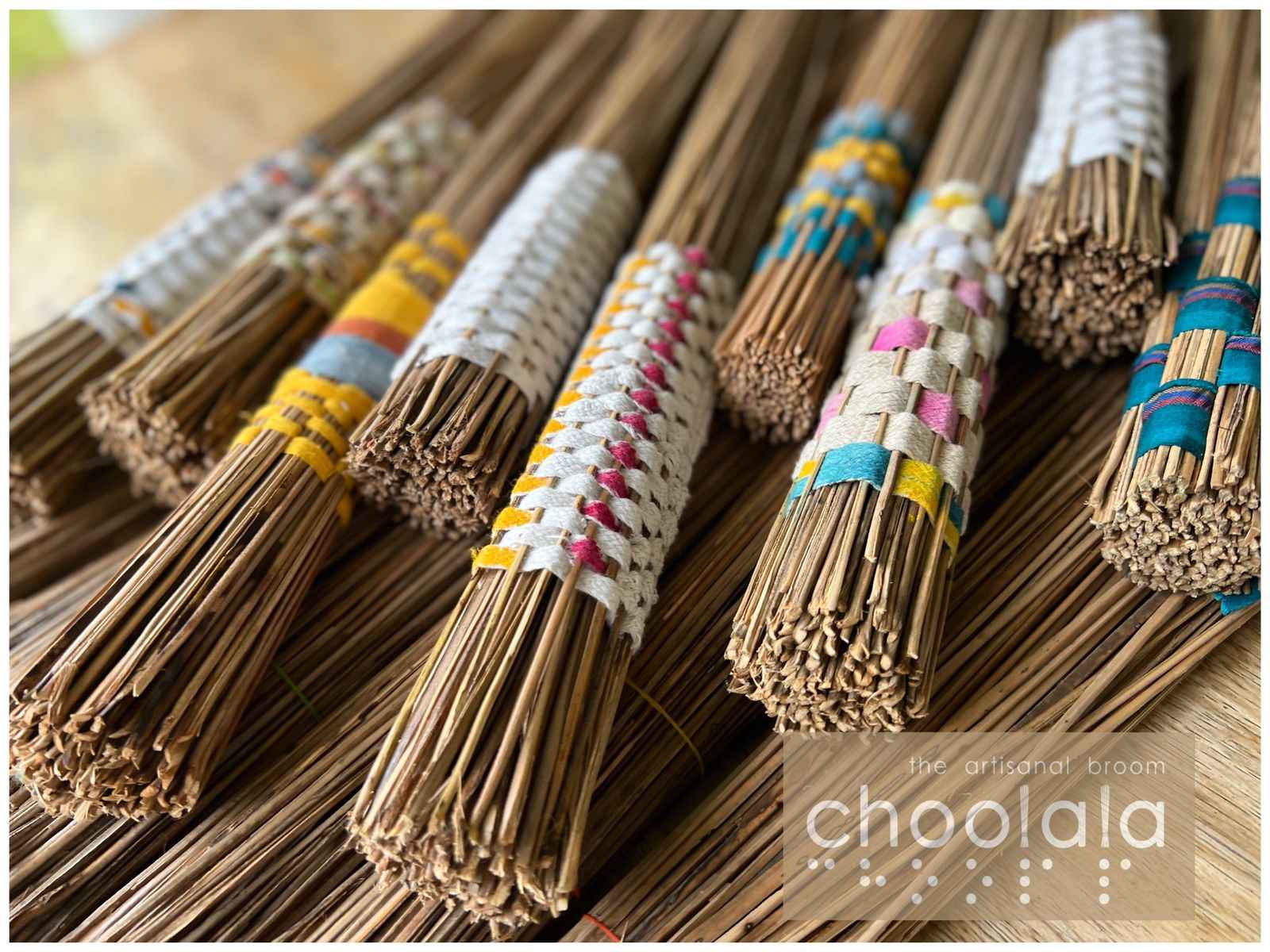
Circling back to why this time her venture is focused on visually impaired people, Lakshmi says it has made her more aware of the beauty of life.
She adds that we as a society and the world at large sometimes fail to understand how tough life must be to wake up and not be able to see.
She says, “The next time you open your eyes in the morning, maybe just take a second to appreciate seeing the yellow of the sunshine filtering in through the window. Because for someone who cannot see, this moment would be a dream come true.”
Edited by Yoshita Rao
This story made me
- 97
- 121
- 89
- 167
Tell Us More
We bring stories straight from the heart of India, to inspire millions and create a wave of impact. Our positive movement is growing bigger everyday, and we would love for you to join it.
Please contribute whatever you can, every little penny helps our team in bringing you more stories that support dreams and spread hope.






